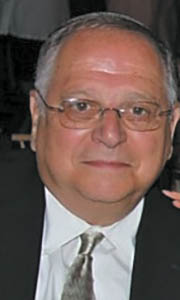


A recent article on Huffington Post by a rabbi, a blog by Rabbi Efrem Goldberg and some exchanges on Facebook have re-opened the discussion about the propriety of bringing very young children to shul. Let me state at the outset that I love children. Let me also declare that I am not a curmudgeon or a misanthropic tyrant. I do, however, believe very strongly in the sanctity of the synagogue and the importance of public prayer.
In order to acclimate a child to do mitzvot, we teach them to make brachot, to recite certain prayers, to wave a lulav, to know what they may or may not do on Shabbat etc. Much of this is done in school. However, parents provide very influential role models for children when it comes to davening. How a parent prays, how often, where and with how much kavannah are indelible lessons a child learns from a very early age. The home and the school need to be partners because davening is caught as much as it is taught.
I cite as an example a scenario in which a local synagogue arranged a daily youth minyan between the end of school and camp. The rabbi informed all the young boys and girls that davening doesn’t end just because school is over. One young man, a recent bar mitzvah who takes davening seriously, asked his mom if she would drop him off. She replied I will join you and bring your sister as well. That’s modeling.
In theory, all adults should appreciate, understand and comport themselves in shul as if they truly understand what it means to “stand before the King.” Would that it were so. In more yeshivish minyanim where congregants are perhaps more learned this is not a problem. In many other Orthodox synagogues, the atmosphere could use some curative measures. None of this is helped when pre-school toddlers and infants are brought into shul. When a child can appreciate what davening is and can sit through a service next to a parent, then it is certainly meritorious to have that child in shul. Babies and pre-schoolers need to be in a tot-Shabbat or Junior Congregation setting.
Synagogue services are not for babysitting. If mothers want to come to shul, they should hire a babysitter. If they can’t stand being with their child for the morning and send him/her off with the husband in all kinds of foul weather to make it his problem, and the little darling doesn’t sleep through the service, it is not the appropriate atmosphere for meaningful prayer.
It seems we have lost the capacity for awe and reverence in the synagogue. I cringe at the memory of a shul president announcing that mothers should not change their babies on the Kiddush tables and please do not leave soiled diapers in the tallis rack! It must be a generational thing. Young parents today bring their babies everywhere, even when it is totally inappropriate.
There are those for whom the sound of crying babies is music to their ears. They should feel comfortable in shul. Nonsense. All an infant knows is that this big room is a good place to nap, play games, eat snacks and/or hang on to Mommy or Daddy. What lessons are we imparting? Either we take prayer seriously or we don’t. Rav Shlomo Wolbe zt”l, in his book on parenting, Planting and Building (p. 62) wrote:
“We must be careful not to bring our children to synagogue when they are too young. A very young child also has no idea what is going on in synagogue. He is unfamiliar with the prayers, can’t read a siddur, certainly doesn’t pray and makes it difficult for others around him to pray. We often see such children roaming around the aisles during prayers…”
Rabbi Efrem Goldberg observed: “… the main problem is not the disturbance in synagogue. Rather, it is the insensitivity we cultivate when we bring these immature children there. A child must appreciate, from the moment his feet cross the threshold, that he or she is in a special place. There should be a feeling of awe there…The longer we delay a child’s first visit to synagogue, the more he or she will understand what transpires there and the more positive will be their long-term feelings for such a place. When a child is brought to synagogue too early, the synagogue becomes his playground. Then it is very difficult to change his attitude and behavior later on, and to imbue him with the proper feeling of awe that should have been associated with synagogue since his childhood… Ideally, a visit to synagogue should be a reward. If the child demonstrates that he can behave nicely, then we grant him a visit to the synagogue. Such an approach makes a visit to synagogue a precious experience.”
I understand that I may be ruffling some feathers with this apparently severe approach. That may be because for many people the social component of shul is a main driver of their continued commitment to Orthodoxy. They feel socially Orthodox and limiting their talking or pediatric supervision is literally an affront to their main reason for being connected to observance. Those reciting Kaddish are entitled to a respectful silence and response; the shliach tzibbur and ba’al koreh need to be heard.
I once attended a large synagogue in the South whose respected rabbi did not tolerate noise during services. When a child made a fuss, he halted the service and announced “Little children, like orders, must be carried out.”
For a halakhic analysis of decorum in the synagogue see “In the King’s Presence” http://www.daat.co.il/daat/english/ten-daat/greene-1.htm.
Dr. Wallace Greene has had a distinguished career as a Jewish educator, administrator and fundraiser. He is currently the Executive Director of the Shulamith School of Brooklyn, the oldest religious girls school in the US.










